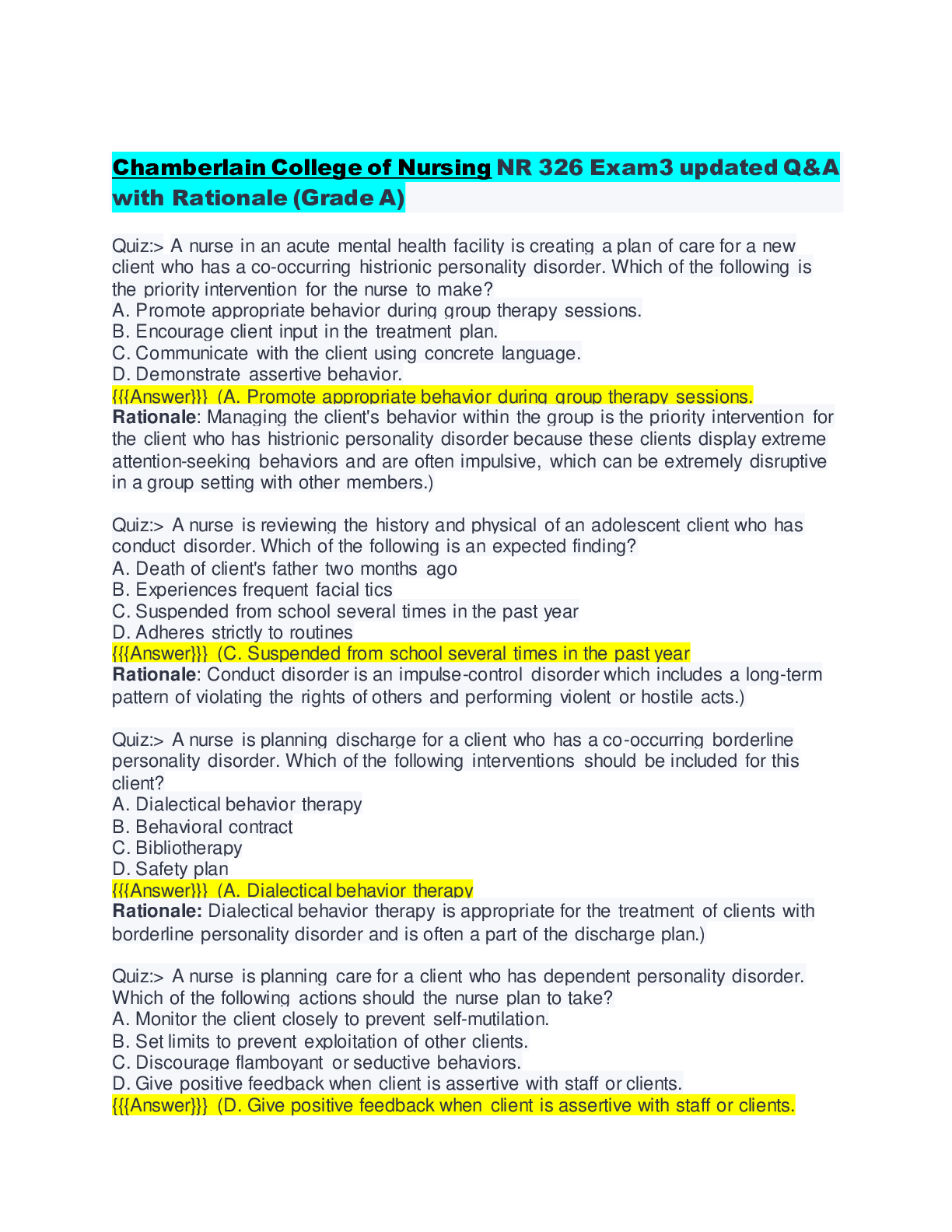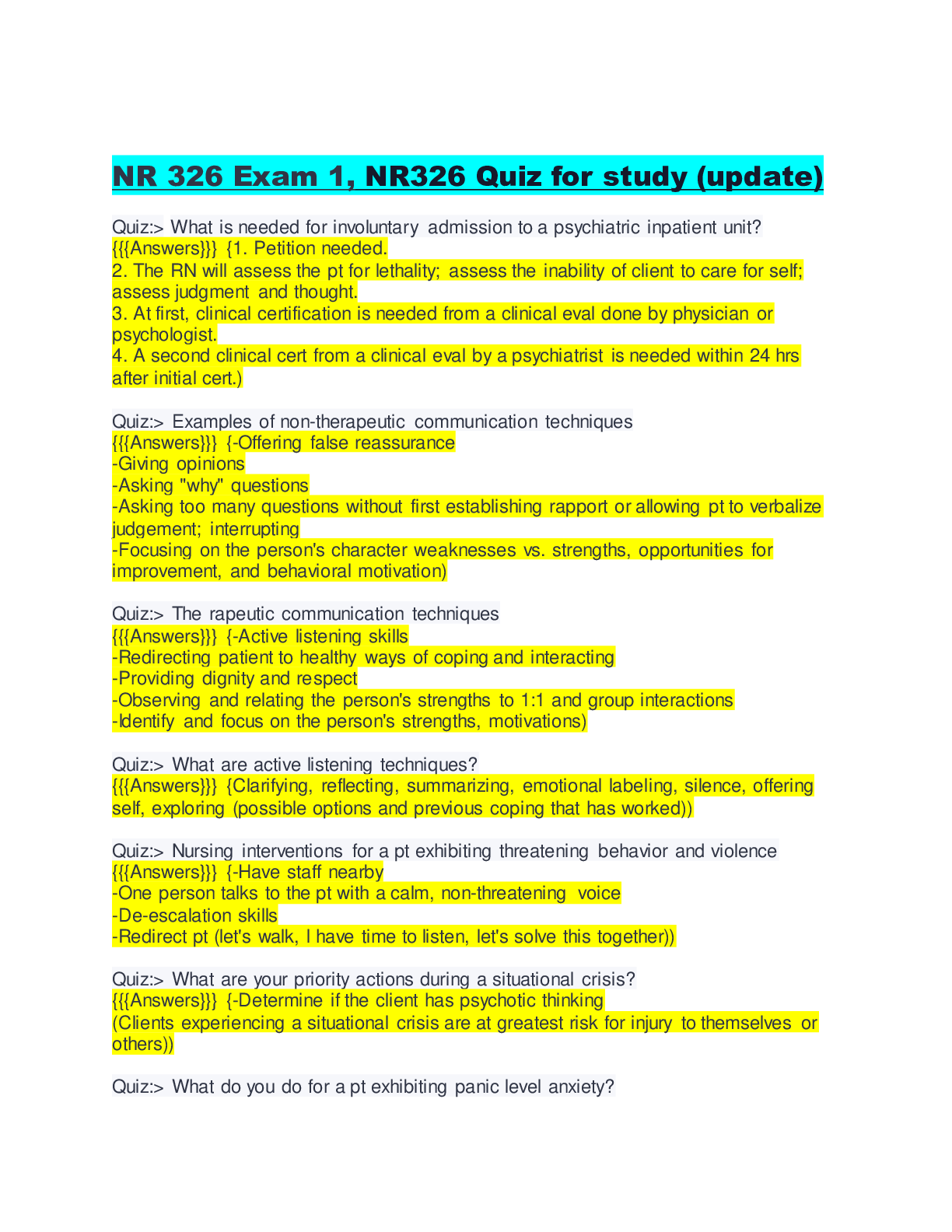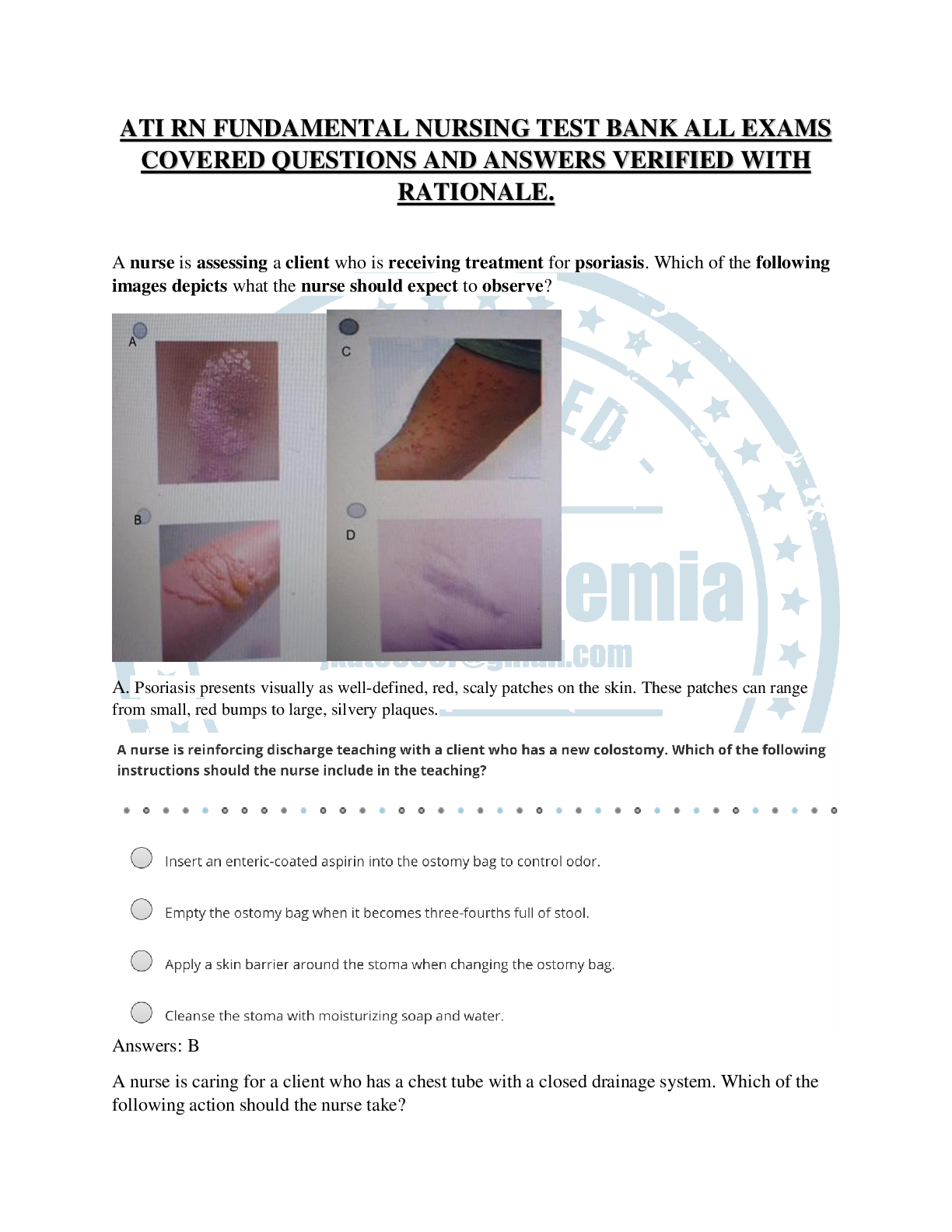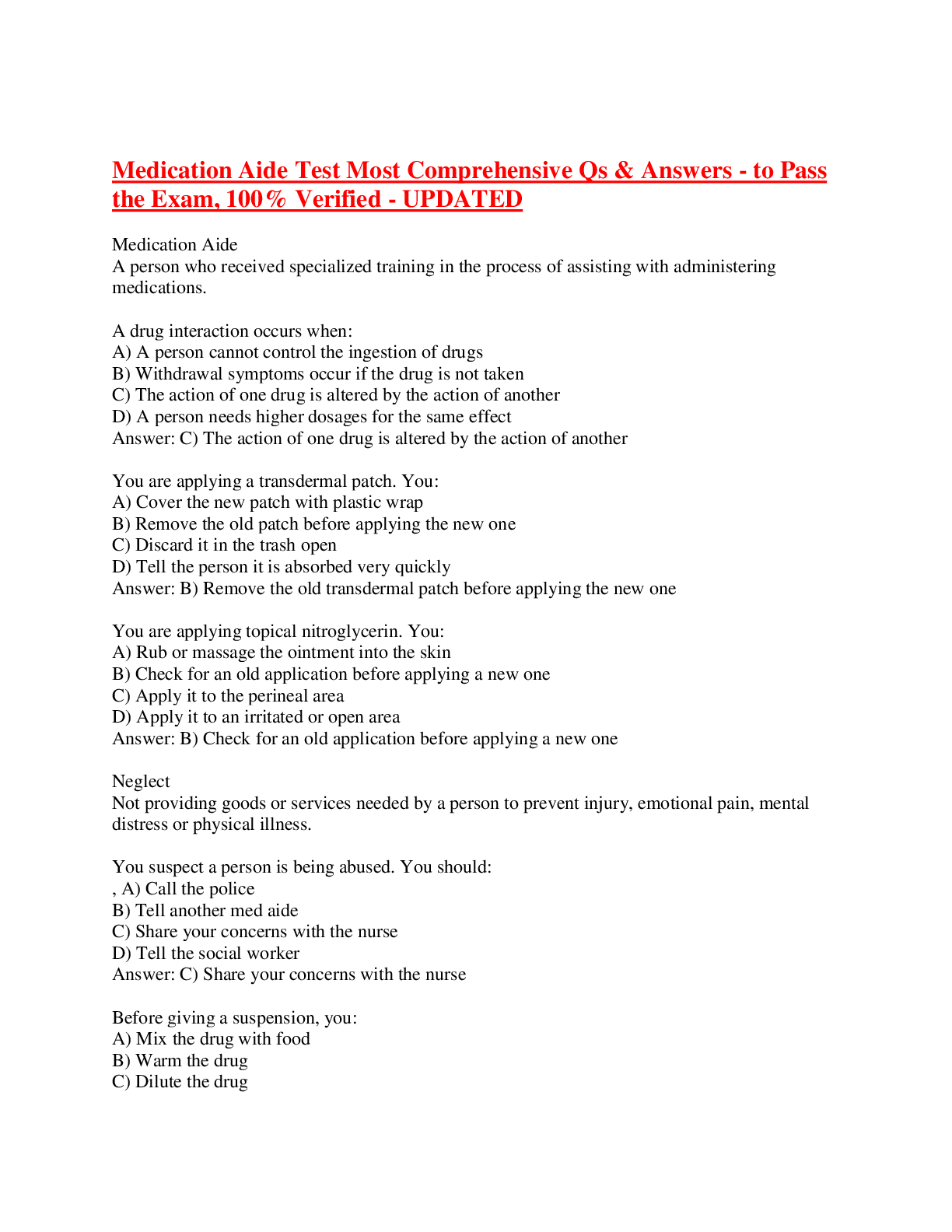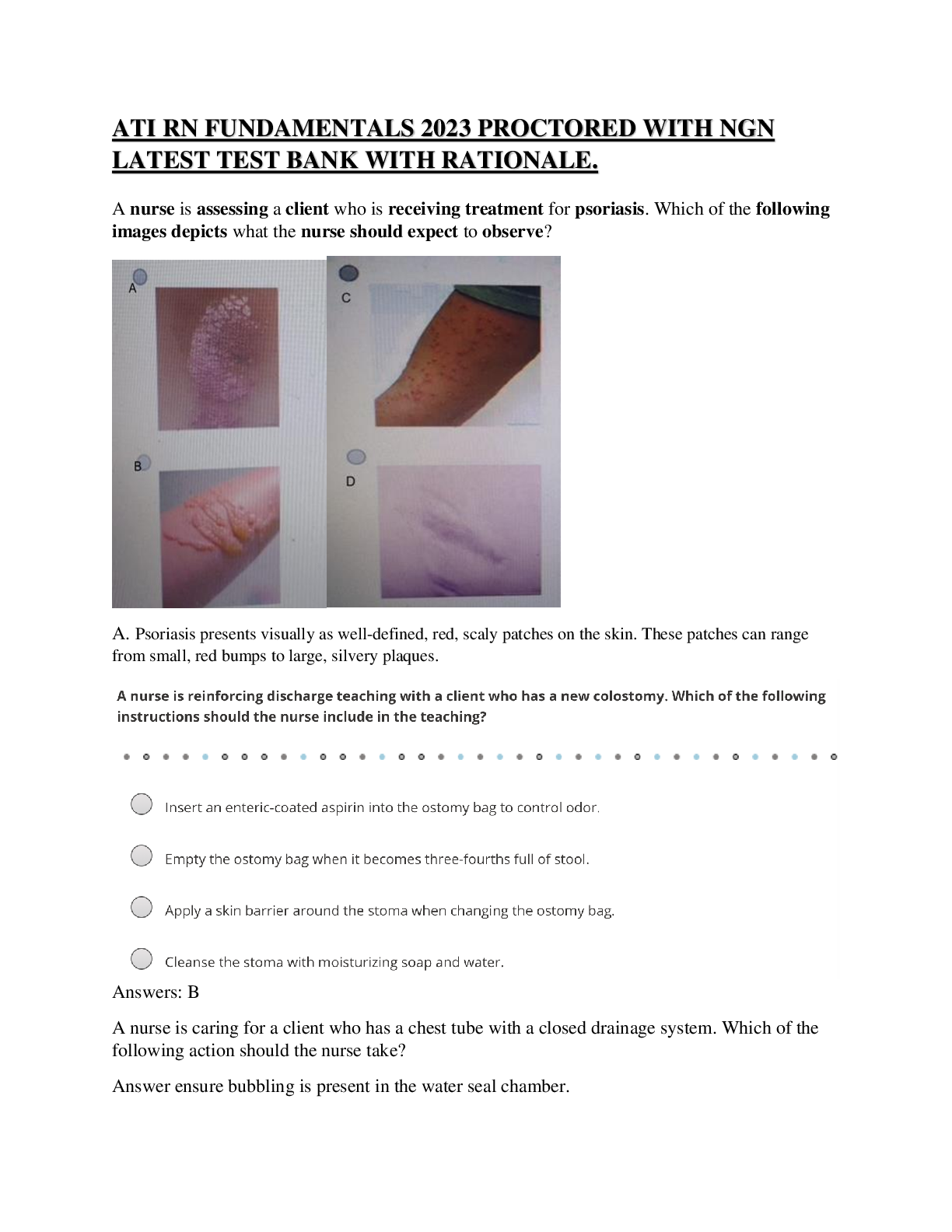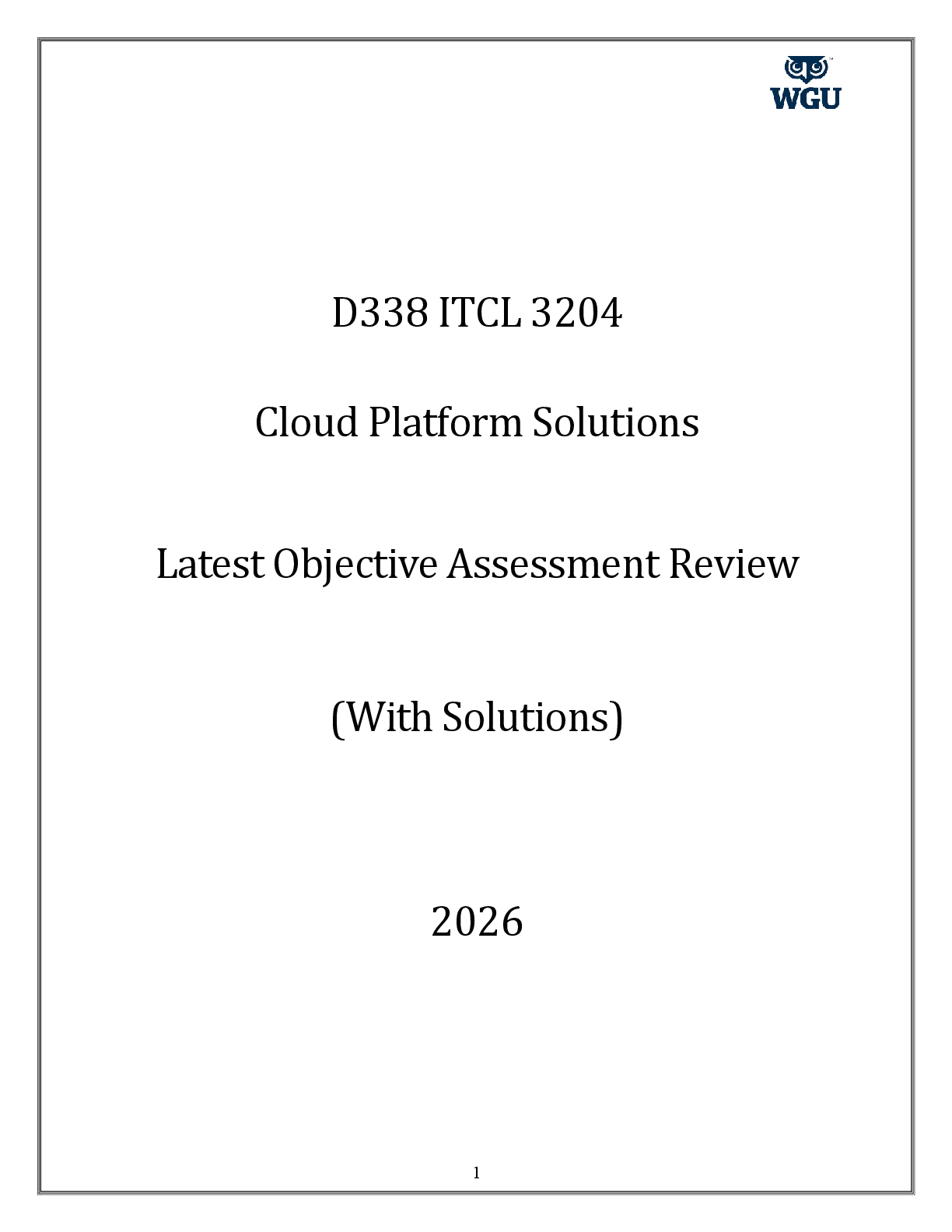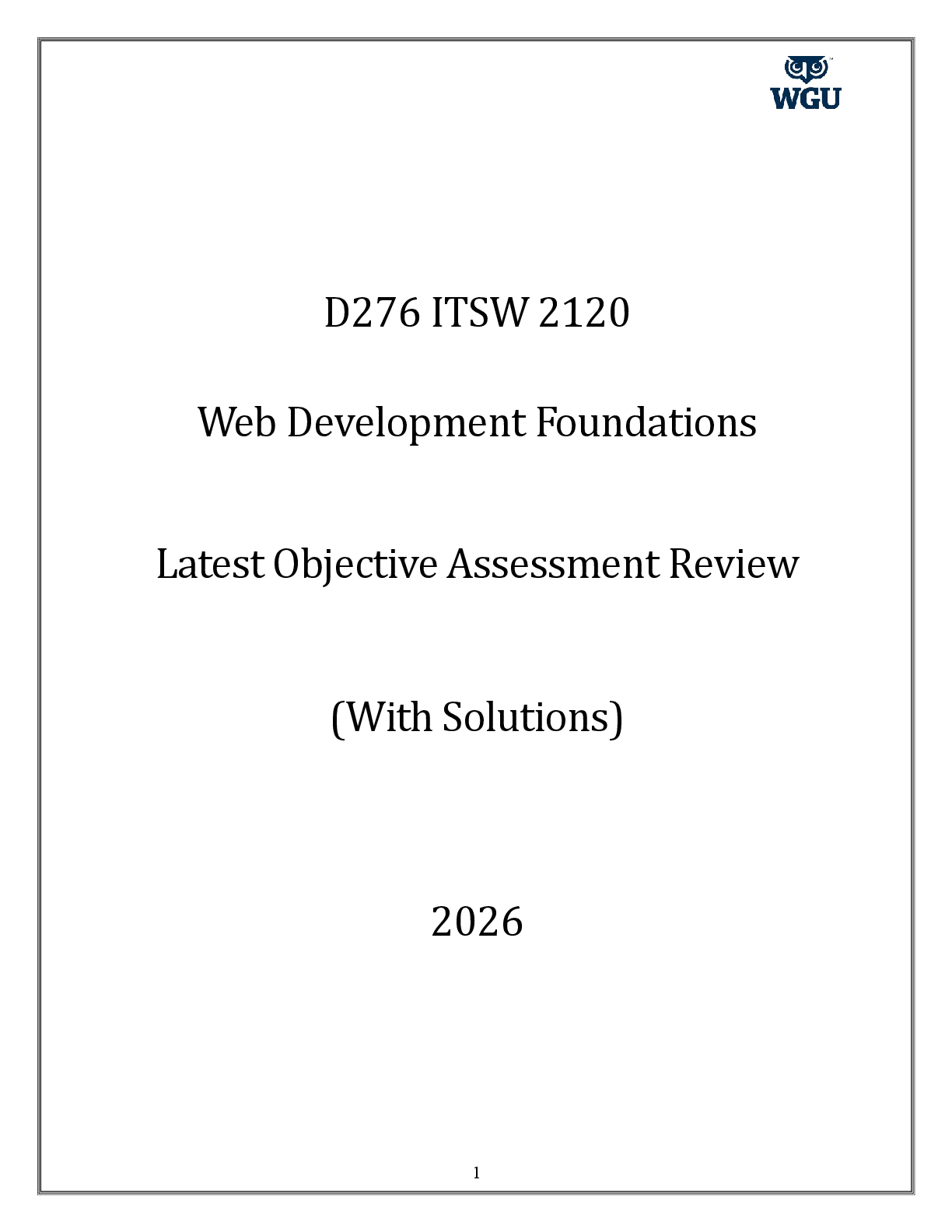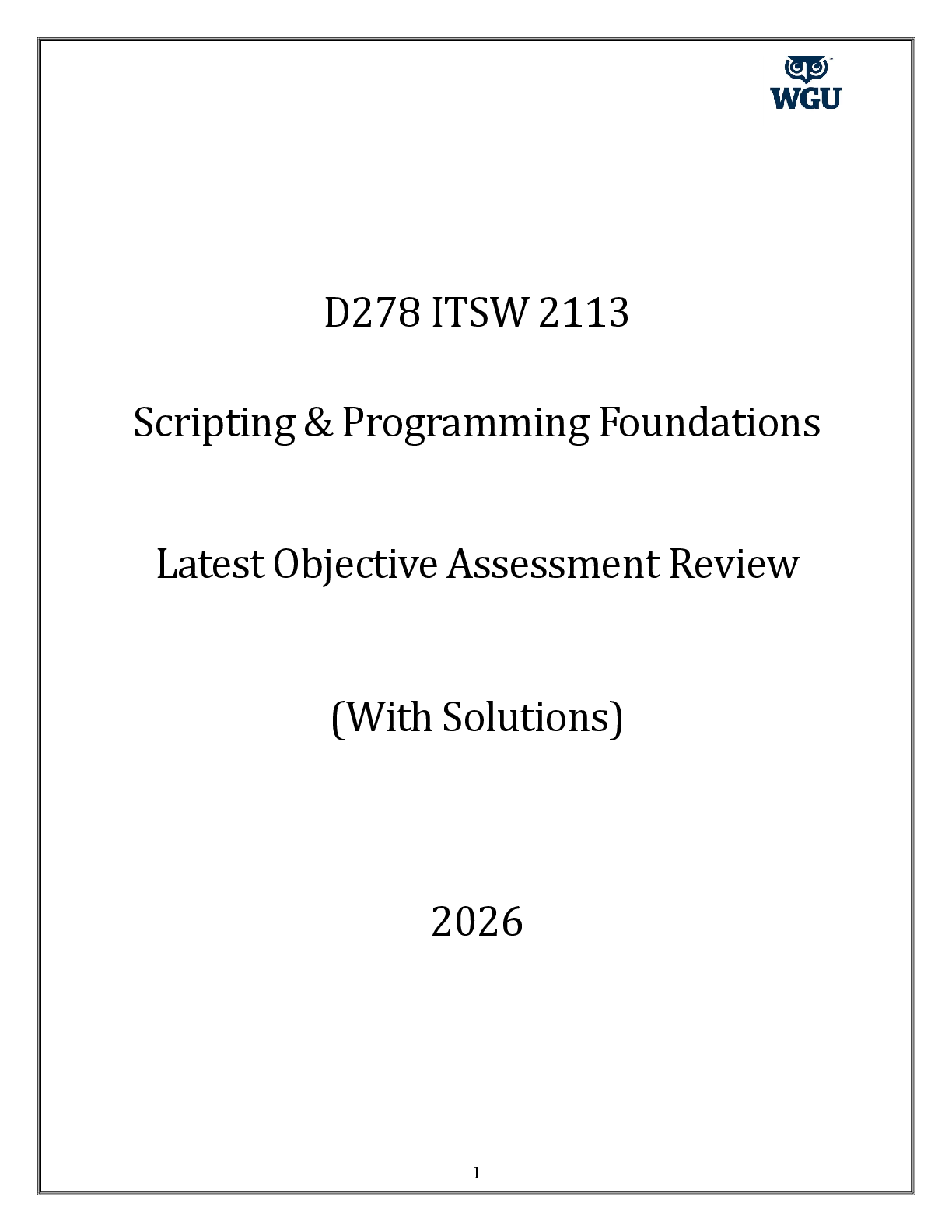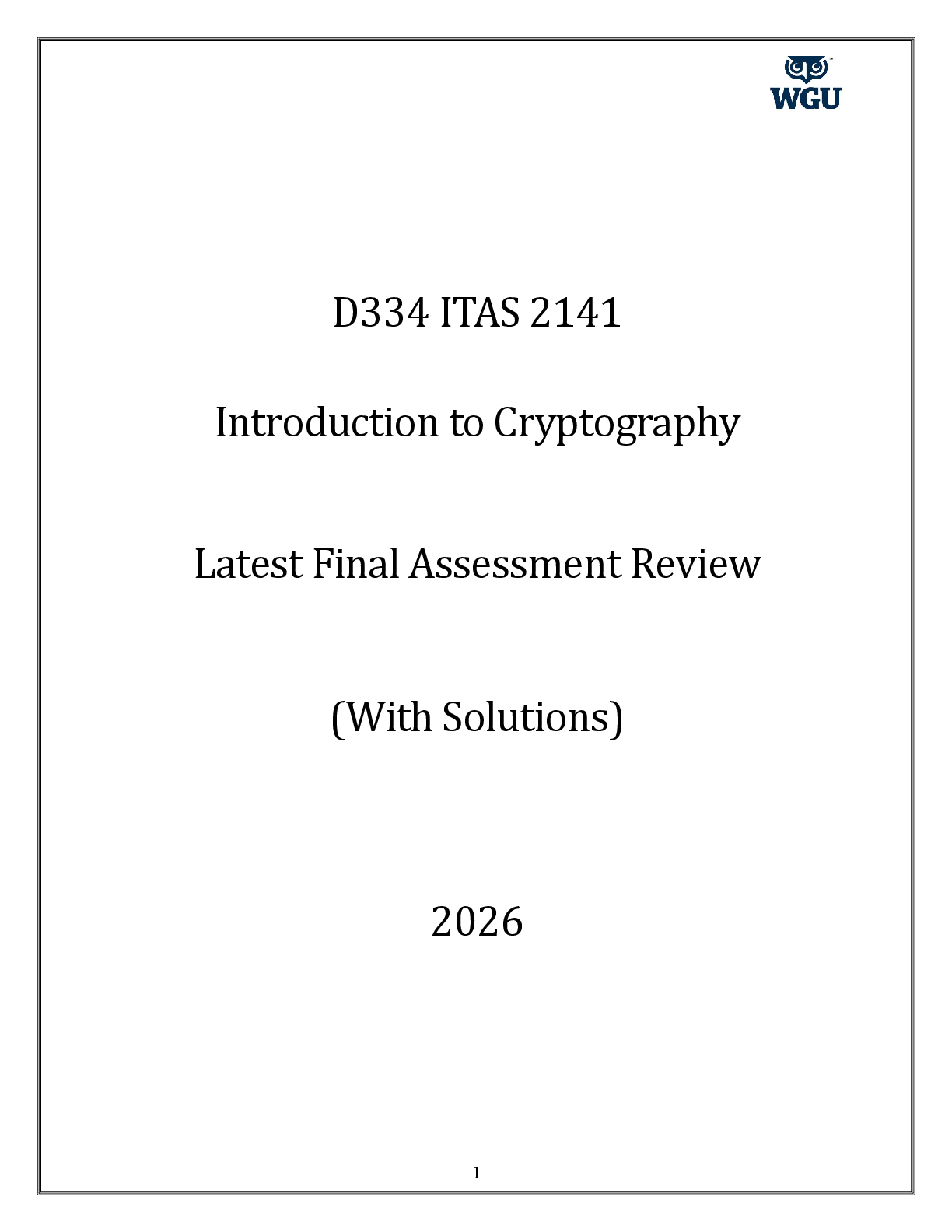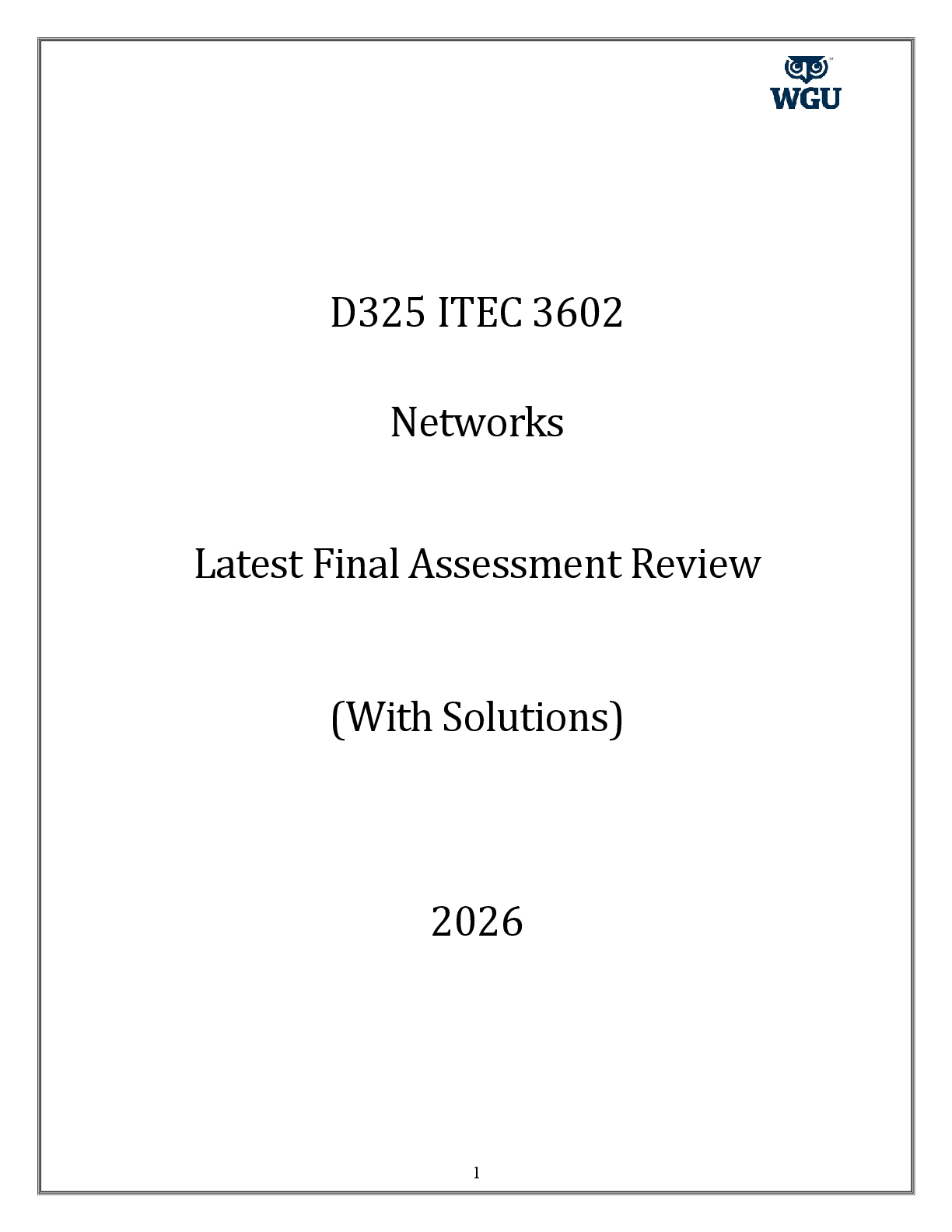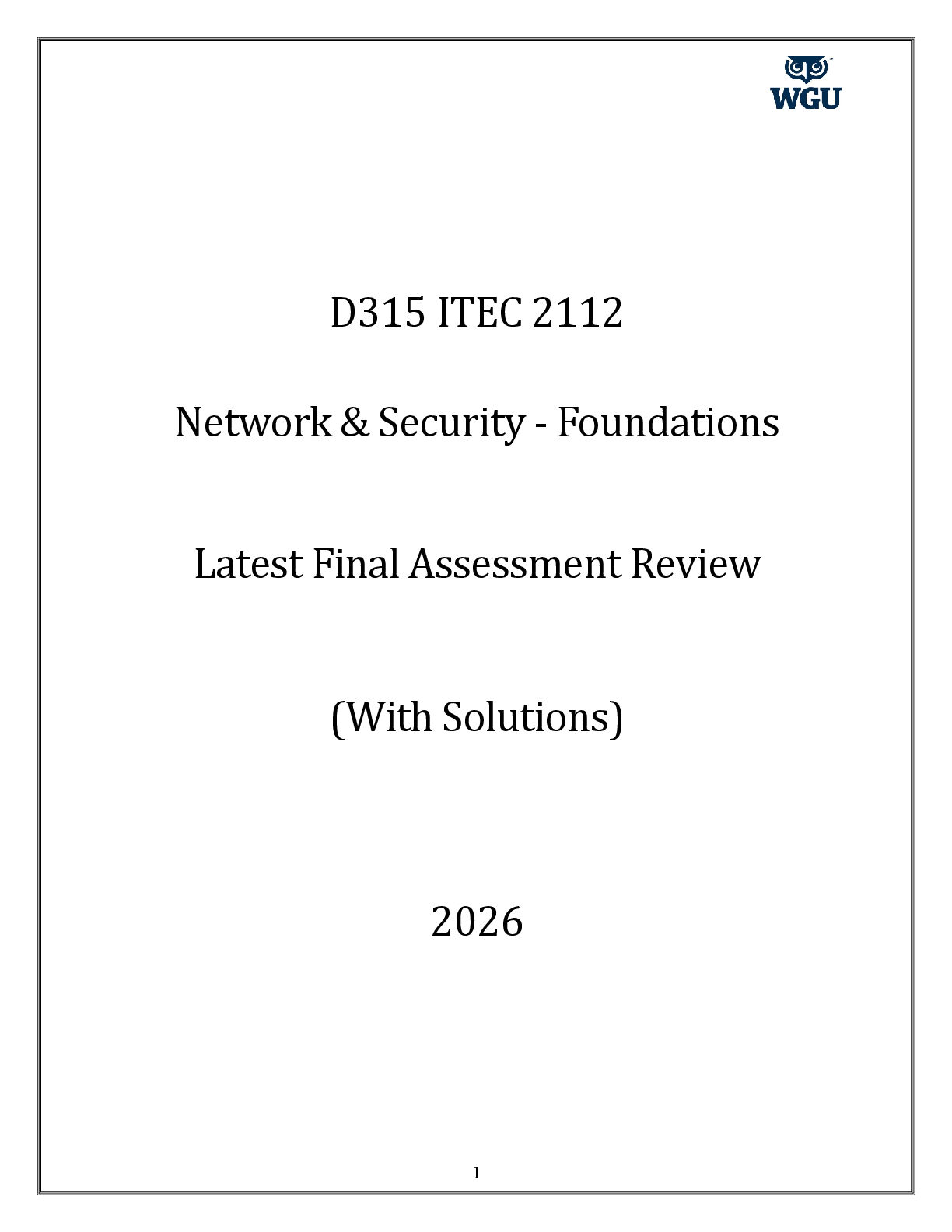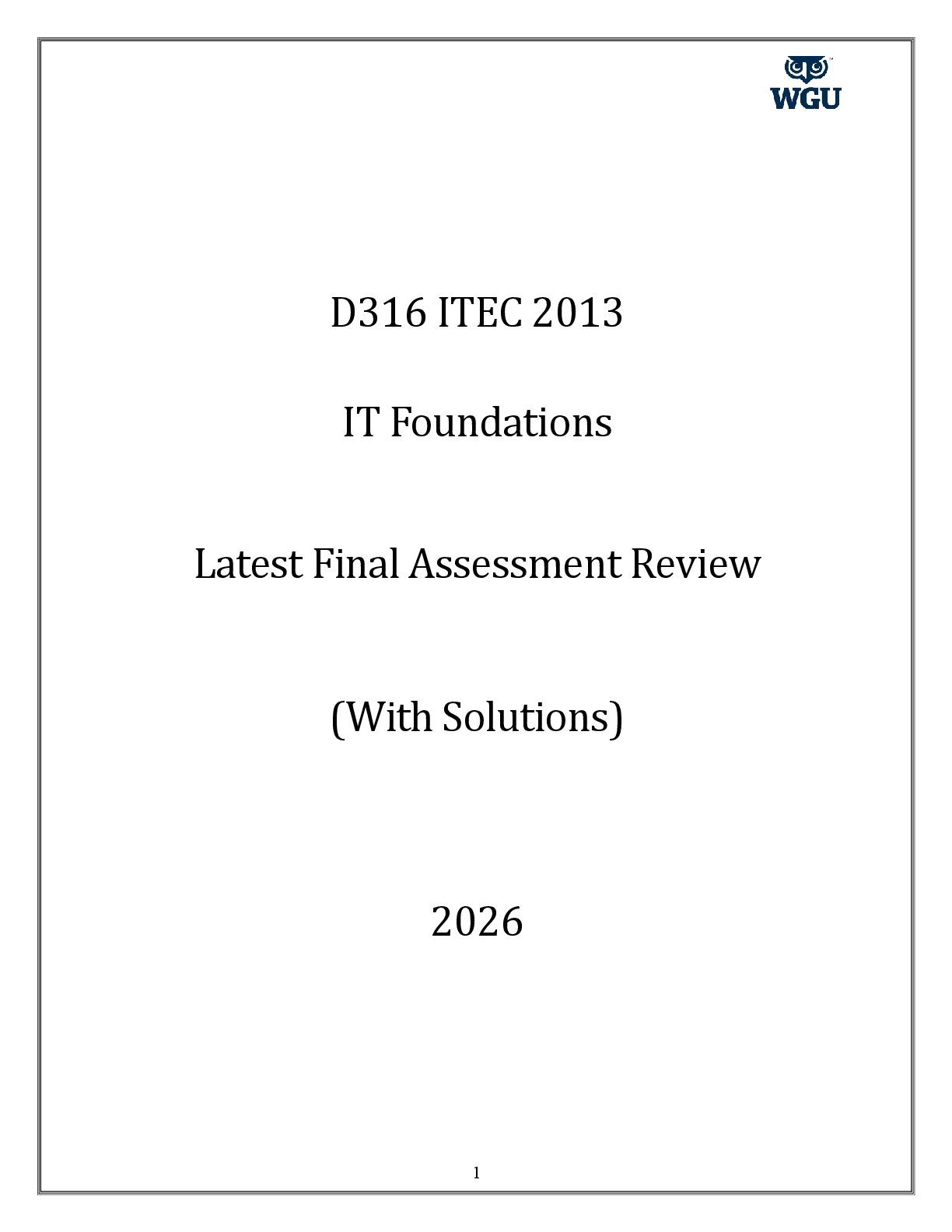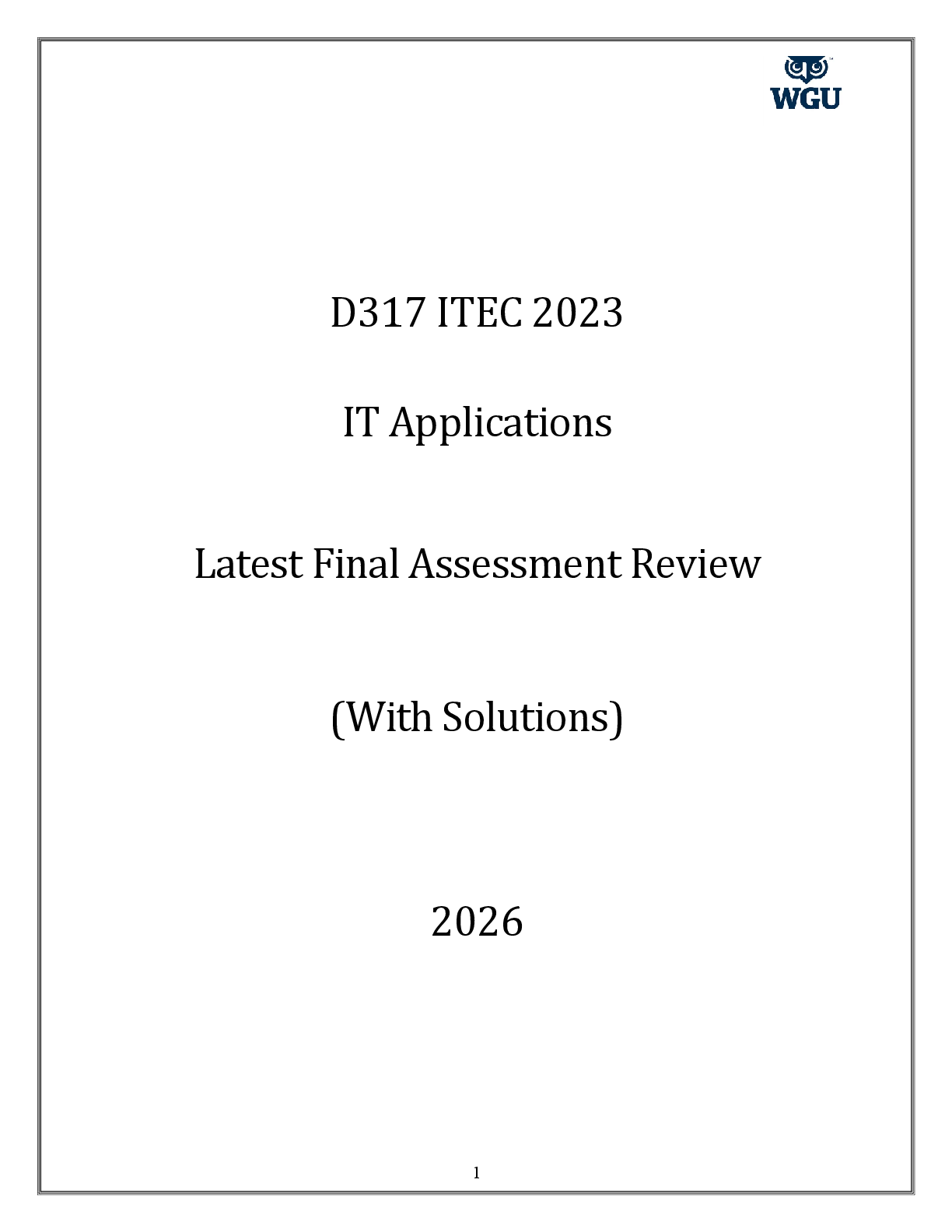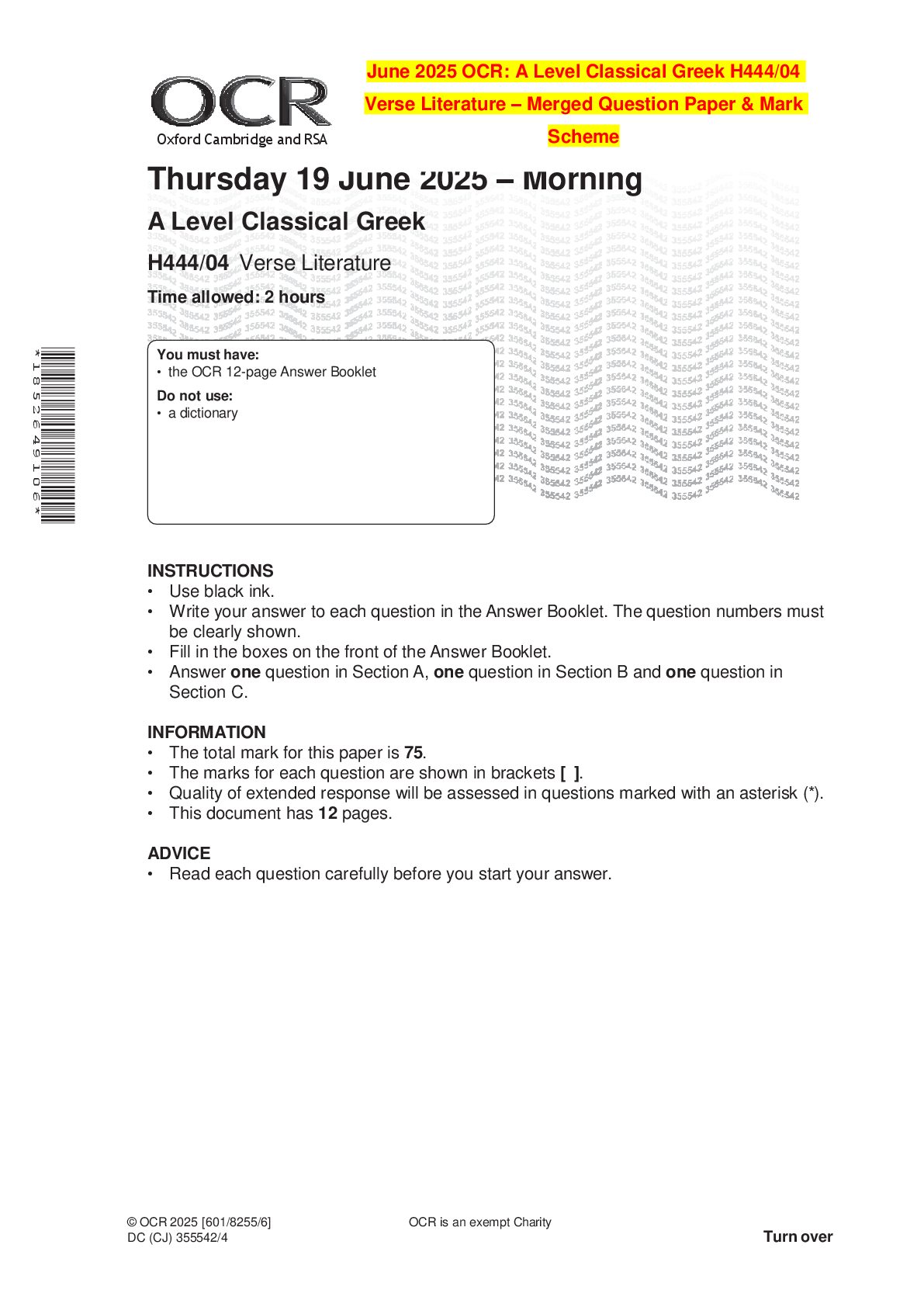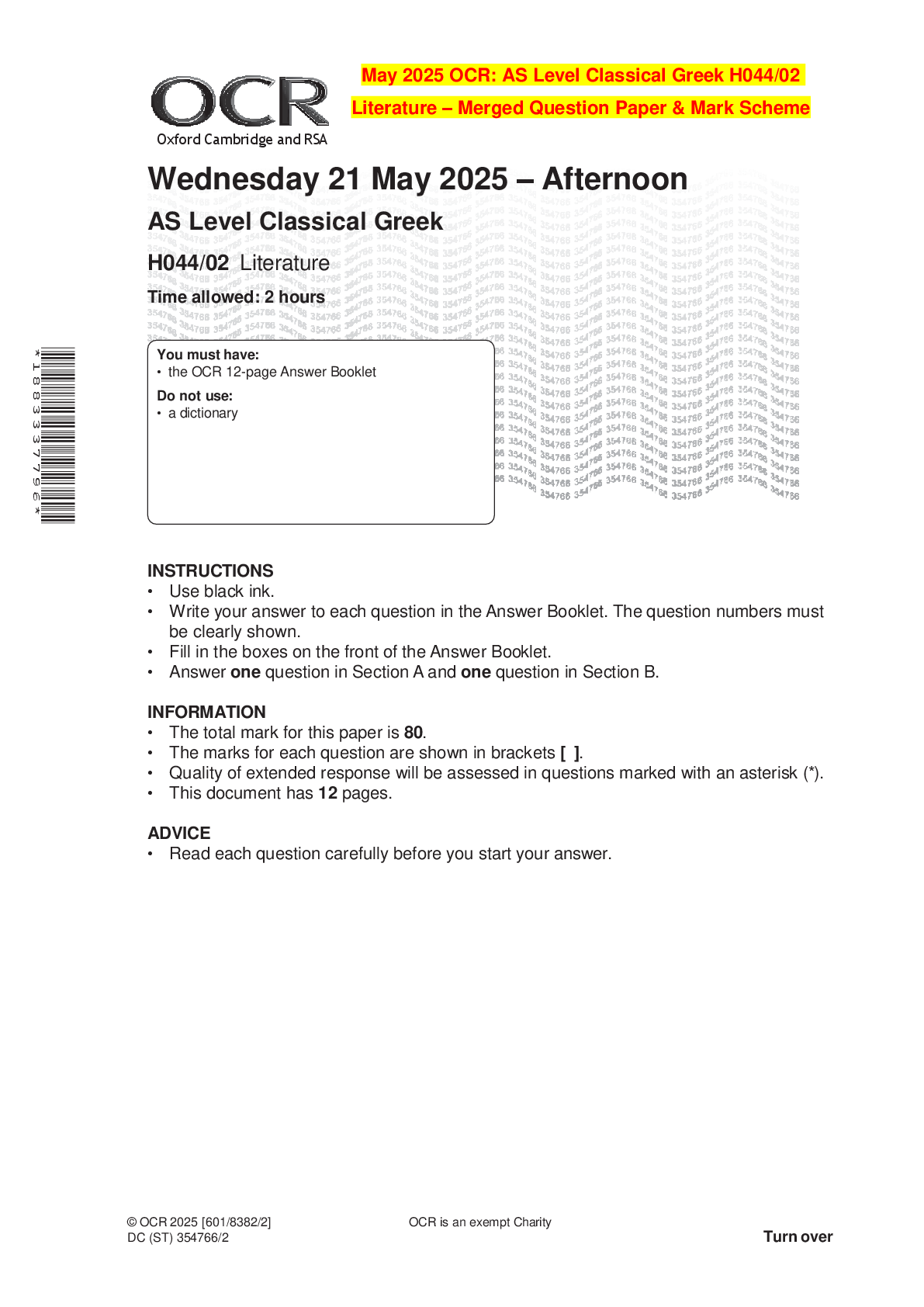NR 326 Exam3 updated Q&A with Rationale (Grade A)Quiz:> A nurse in an acute mental health facility is creating a plan of care for a new
client who has a co-occurring histrionic personality disorder. Which of the followi
...
NR 326 Exam3 updated Q&A with Rationale (Grade A)Quiz:> A nurse in an acute mental health facility is creating a plan of care for a new
client who has a co-occurring histrionic personality disorder. Which of the following is
the priority intervention for the nurse to make?
A. Promote appropriate behavior during group therapy sessions.
B. Encourage client input in the treatment plan.
C. Communicate with the client using concrete language.
D. Demonstrate assertive behavior.
{{{Answer}}} (A. Promote appropriate behavior during group therapy sessions.
Rationale: Managing the client's behavior within the group is the priority intervention for
the client who has histrionic personality disorder because these clients display extreme
attention-seeking behaviors and are often impulsive, which can be extremely disruptive
in a group setting with other members.)
Quiz:> A nurse is reviewing the history and physical of an adolescent client who has
conduct disorder. Which of the following is an expected finding?
A. Death of client's father two months ago
B. Experiences frequent facial tics
C. Suspended from school several times in the past year
D. Adheres strictly to routines
{{{Answer}}} (C. Suspended from school several times in the past year
Rationale: Conduct disorder is an impulse-control disorder which includes a long-term
pattern of violating the rights of others and performing violent or hostile acts.)
Quiz:> A nurse is planning discharge for a client who has a co-occurring borderline
personality disorder. Which of the following interventions should be included for this
client?
A. Dialectical behavior therapy
B. Behavioral contract
C. Bibliotherapy
D. Safety plan
{{{Answer}}} (A. Dialectical behavior therapy
Rationale: Dialectical behavior therapy is appropriate for the treatment of clients with
borderline personality disorder and is often a part of the discharge plan.)
Quiz:> A nurse is planning care for a client who has dependent personality disorder.
Which of the following actions should the nurse plan to take?
A. Monitor the client closely to prevent self-mutilation.
B. Set limits to prevent exploitation of other clients.
C. Discourage flamboyant or seductive behaviors.
D. Give positive feedback when client is assertive with staff or clients.
{{{Answer}}} (D. Give positive feedback when client is assertive with staff or clients.
Rationale: The client who has dependent personality disorder has great difficulty
demonstrating assertive behavior and commonly relies on others to make decisions.
The nurse should encourage the client to be more assertive and independent.)
Quiz:> A nurse is reviewing the medical record of a client who performs self-injury.
Which of the following information should the nurse identify as placing the client at risk
for self-harm behaviors?
A. The client has a co-occurring borderline personality disorder.
B. The client has a parent who has dependent personality disorder.
C. The client has a history of bulimia nervosa.
D. The client has a diagnosis of anti-social personality disorder.
{{{Answer}}} (A. The client has a co-occurring borderline personality disorder.
Rationale: A diagnosis of borderline personality disorder is associated with an
increased risk for self-harm.)
Quiz:> A nurse is caring for a client who has schizophrenia and tells the nurse, "They lie
about me all the time and they are trying to poison my food." Which of the following
statements should the nurse make?
A. "You are mistaken. Nobody is lying about you or trying to poison you."
B. "You seem to be having very frightening thoughts."
C. "Why do you think you are being lied about and poisoned?"
D. "Who is lying about you and trying to poison you?"
{{{Answer}}} (B. "You seem to be having very frightening thoughts."
Rationale: When responding to a client who is delusional, the nurse should avoid
making statements that directly confront or affirm the client's delusional beliefs. Instead
of responding literally to the client's words, the nurse should respond to the feelings that
the client is attempting to communicate. By doing this, the nurse is shifting the focus
from the delusional beliefs, which are not real, to the client's fear, which is real.)
Quiz:> A nurse is conducting a group therapy session for several clients. The group is
laughing at a joke one of the clients told, when a client who is schizophrenic jumps up
and runs out of the room yelling, "You are all making fun of me!" The nurse should
identify this behavior as which of the following characteristics of schizophrenia?
A. Magical thinking
B. Delusions of grandeur
C. Ideas of reference
D. Looseness of association
{{{Answer}}} (C. Ideas of reference
Rationale: When ideas of reference are present, the client believes all events,
situations, or interactions are directly related to him.)
Quiz:> A nurse is providing teaching for a client who has schizophrenia and a new
prescription for fluphenazine. Which of the following information should the nurse
provide?
A. "This medication might turn urine your orange."
B. "Sleepiness should subside within a week."
C. "Stop the medication if hypotension occurs."
D. "A low-grade fever is expected with first doses."
{{{Answer}}} (B. "Sleepiness should subside within a week."
Rationale: The nurse should inform the client that fluphenazine, like other firstgeneration antipsychotics, may cause sedation with early treatment, but should subside
within a week or so.)
Quiz:> A nurse in a mental health clinic is conducting a staff education session on
schizophrenia. Which of the following manifestations should the nurse include in the
teaching plan as negative symptoms? (Select all that apply.)
A. Delusions
B. Hallucinations
C. Anhedonia
D. Poor judgment
E. Blunt affect
{{{Answer}}} (C. Anhedonia
E. Blunt affect
Rationale: Delusions is incorrect. Delusions are an example of a positive symptom of
schizophrenia. Hallucinations is incorrect. Hallucinations are an example of a positive
symptom of schizophrenia. Anhedonia is correct. Anhedonia is an example of a
negative symptom of schizophrenia. Poor judgment is incorrect. Poor judgment is an
example of a cognitive symptom of schizophrenia. Blunt affect is correct. Blunt affect is
an example of a negative symptom of schizophrenia.)
Quiz:> A nurse is caring for an adolescent client who has a new diagnosis of
schizophrenia. The client's parents are tearful and express feelings of guilt. Which of the
following statements should the nurse make?
A. "You said that you feel guilty about your daughter's diagnosis. Let's talk about what is
causing you to feel this way."
B. "You should not feel guilty about your daughter's diagnosis. Schizophrenia is
unpreventable."
C. "I'm sure your daughter's diagnosis is very difficult to deal with, but everything will be
all right once she receives the proper treatment."
D. "Your provider has explained the causes of schizophrenia. Why do you feel guilty
about your daughter's diagnosis?"
{{{Answer}}} (A. "You said that you feel guilty about your daughter's diagnosis. Let's talk
about what is causing you to feel this way."
Rationale: This statement is an example of clarification and promotes further
discussion, which is a therapeutic communication technique.)
Quiz:> A nurse is assisting a client who has schizophrenia prepare a relapse plan.
Which of the following statements should the nurse verbalize during the session?
A. "You should be aware that excessive sleeping is an early sign of relapse."
B. "Relapse is an indication that you are not taking your medications properly."
C. "You should keep your provider's and therapist's number with you."
D. "Taking an additional dose of medication is appropriate as soon as signs of relapse
appear."
{{{Answer}}} (C. "You should keep your provider's and therapist's number with you."
Rationale: The client should have a written plan, including important numbers, available
at all times in case relapse occurs.)
Quiz:> A nurse in an acute care mental health facility is sitting with a client who has
schizophrenia. The client whispers to the nurse, "I'm being kept in this prison against my
will. Please try to get me out." Which of the following responses should the nurse make?
A. "Why do feel that you need to leave?"
B. "You feel that you don't belong here."
C. "We are here to help you and give you the care that you need right now."
D. "Try to take some deep breaths and I'm sure you'll feel better."
{{{Answer}}} (B. "You feel that you don't belong here."
Rationale: Restating is a therapeutic communication technique and encourages further
dialogue.).
[Show More]
